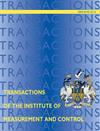基于风险度函数的自适应动态窗口方法
IF 1.7
4区 计算机科学
Q3 AUTOMATION & CONTROL SYSTEMS
Transactions of the Institute of Measurement and Control
Pub Date : 2023-10-17
DOI:10.1177/01423312231199807
引用次数: 0
摘要
针对动态窗口法规划效率低、难以避开快速移动障碍物的问题,提出了一种改进的基于风险度函数的自适应动态窗口法。设计风险函数,并将其引入传统DWA的评估函数中,对动态障碍物与机器人碰撞的风险进行评估,使机器人能够有效避开更快的障碍物。然后,根据模糊控制原理,设计自适应权重系数来改进评价函数,使移动机器人能够更高效地向目标点移动。仿真结果表明,与传统DWA相比,基于风险度函数的自适应DWA完成规划任务的时间缩短了约8%,规划完成后的路径长度缩短了约8%,表明改进算法具有更高的效率。经过50次重复实验,使用基于风险度函数的自适应DWA成功避开了所有障碍,完成了规划任务,表明该算法具有较高的安全性。本文章由计算机程序翻译,如有差异,请以英文原文为准。
Adaptive dynamic windowing approach based on risk degree function
Aiming at the problem that the dynamic window approach (DWA) has low planning efficiency and it is difficult to avoid fast-moving obstacles, an improved adaptive DWA based on risk degree function is proposed in this paper. The risk function is designed and introduced into the evaluation function of the traditional DWA to evaluate the risk of collision between dynamic obstacles and the robot, so that the robot can effectively avoid faster obstacles. Then, according to the fuzzy control principle, the adaptive weight coefficient is designed to improve the evaluation function, so that the mobile robot can move to the target point more efficiently. The simulation results show that compared with the traditional DWA, the adaptive DWA based on risk degree function reduces the time of completing the planning task by about 8%, and the path length after the completion of the planning by about 8%, it indicates that the improved algorithm has higher efficiency. After 50 repeated experiments, using the adaptive DWA based on risk degree function successfully avoids all obstacles to complete the planning task, which shows that this algorithm has higher security.
求助全文
通过发布文献求助,成功后即可免费获取论文全文。
去求助
来源期刊
CiteScore
4.10
自引率
16.70%
发文量
203
审稿时长
3.4 months
期刊介绍:
Transactions of the Institute of Measurement and Control is a fully peer-reviewed international journal. The journal covers all areas of applications in instrumentation and control. Its scope encompasses cutting-edge research and development, education and industrial applications.

 求助内容:
求助内容: 应助结果提醒方式:
应助结果提醒方式:


